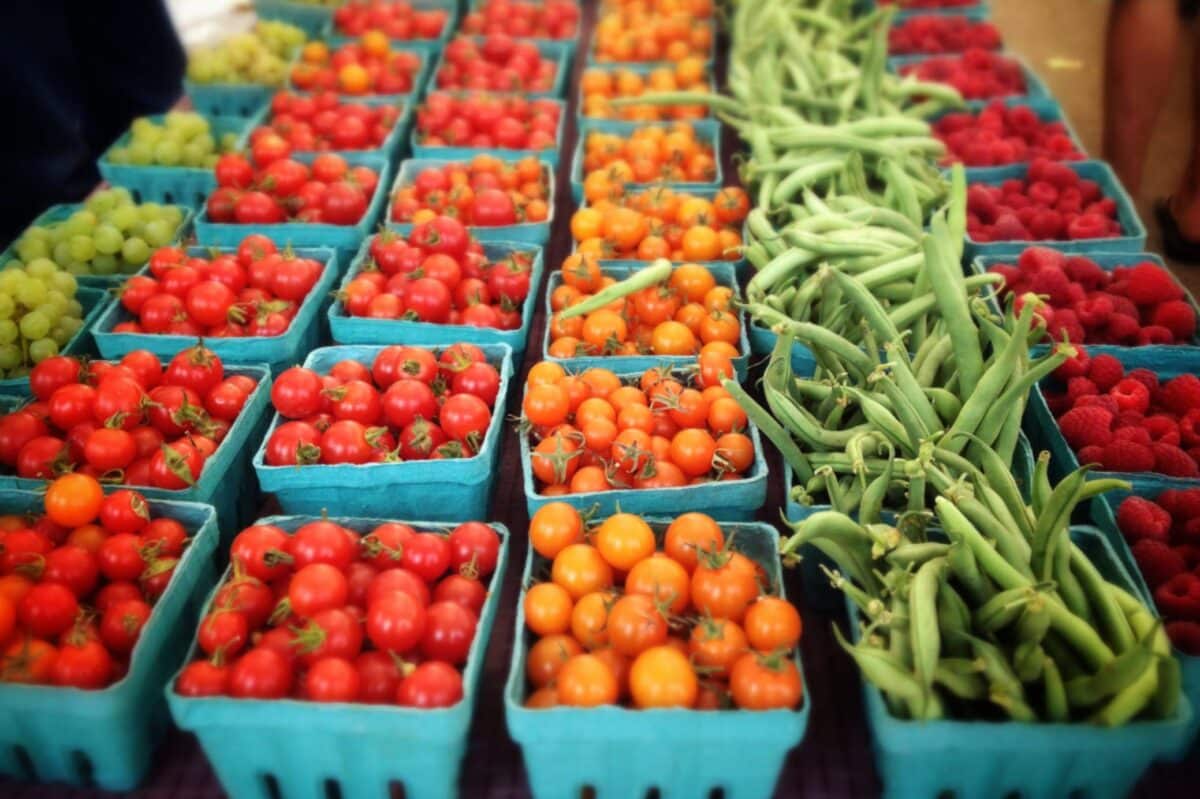Coping with a Life-Threatening Illness
Dealing with a diagnosis of cancer, heart disease, or other serious illness

This therapist directory is offered in partnership with BetterHelp. If you sign up for therapy after clicking through from this site, HelpGuide will earn a commission. This helps us continue our nonprofit mission and continue to be there as a free mental health resource for everyone.
Need to talk to someone now? Find a crisis helpline
If you're a BetterHelp therapist with questions about your directory listing, please contact therapists@betterhelp.com
The right kind of healthy diet can help you prevent or even fight cancer. Here’s how to build an anti-cancer diet, eat more cancer-fighting foods, and lower your risk.

What you eat—and don’t eat—can have a powerful effect on your health, including your risk for cancer. While research tends to point to associations between specific foods and cancer, rather than solid cause-and-effect relationships, there are certain dietary habits that can have a major influence on your risk.
For example, eating a traditional Mediterranean diet rich in fruit, vegetables, and healthy fats like olive oil may help lower your risk for a variety of common cancers, including breast cancer. Conversely, a diet that includes a daily serving of processed meat increases your risk of colorectal cancer.
Some cancer risk factors, such as genetics and environment, are out of your control, but research suggest that about 70% of your lifetime risk of cancer is within your power to change, including your diet. Avoiding cigarettes, avoiding or limiting alcohol, reaching and maintaining a healthy weight, and getting regular exercise are all great steps for preventing cancer. Adopting a healthy, cancer-fighting diet can also play a vital role.
If you have a history of cancer in your family, making small changes to your diet and behaviors now can make a big difference to your long-term health. And if you’ve already been diagnosed with cancer, eating a nutritious diet can help support your mood and strengthen your body during this challenging time.
BetterHelp is an online therapy service that matches you to licensed, accredited therapists who can help with depression, anxiety, relationships, and more. Take the assessment and get matched with a therapist in as little as 48 hours.
Take Assessment HelpGuide is user supported. We earn a commission if you sign up for BetterHelp’s services after clicking through from this site. Learn moreTo lower your risk for many types of cancer—as well as other serious diseases—aim to build your diet around a variety of antioxidant-rich fruit and vegetables, nuts, beans, whole grains, and healthy fats. At the same time, try to limit the amount of processed and fried foods, unhealthy fats, added sugars, and refined carbs you consume.
Plant-based foods are rich in nutrients known as antioxidants that fight off oxidative stress (an imbalance of free radicals), boost your immune system, and help protect against cancer cells.
Currently, most of us fall well short of the recommended daily minimum of five servings of fruit and vegetables. To add more to your diet, focus on adding “whole” foods, as close to their natural state as possible. For example, eat an unpeeled apple instead of drinking apple juice.
Breakfast: Add fresh fruit, seeds, and nuts to your whole grain, low-sugar breakfast cereal (such as oatmeal).
Lunch: Eat a salad filled with your favorite beans and peas or other combo of veggies. Add lettuce, tomato, and avocado to a whole grain sandwich. Have a side of carrots, sauerkraut, or fruit.
Snacks: Grab an apple or banana on your way out the door. Dip carrots, celery, cucumbers, jicama, and peppers in hummus. Keep trail mix made with nuts and dried fruit on hand.
Dinner: Add fresh or frozen veggies to your favorite pasta sauce or rice dish. Top a baked potato with broccoli, sautéed veggies, or salsa.
Dessert: Choose fruit instead of sugary desserts.
Fiber, also called roughage or bulk, is found in fruit, vegetables, legumes, and whole grains and plays a key role in keeping your digestive system clean and healthy. It helps keep cancer-causing compounds moving through your digestive tract before they can create harm. Eating a diet high in fiber may help prevent colorectal cancer and other common digestive system cancers, including stomach, mouth, and pharynx.
Eating a diet high in saturated fat increases your risk for many types of cancer. But healthy types of fat may actually protect against cancer.
Avoid trans fat or partially hydrogenated oil found in packaged and fried foods such as cookies, crackers, cakes, muffins, pie crusts, pizza dough, French fries, fried chicken, and hard taco shells.
Limit saturated fat from red meat and dairy to no more than 10% of your daily caloric intake.
Add more unsaturated fats from fish, olive oil, nuts, and avocados. Omega-3 fatty acids found in salmon, tuna, and flaxseeds can fight inflammation and support brain and heart health.
Consuming refined carbs that cause rapid spikes in blood sugar has been linked to an 88% greater risk of prostate cancer, as well as other serious health problems.
Instead of sugary soft drinks, sweetened cereals, white bread, pasta and processed foods like pizza, opt for unrefined whole grains like whole wheat or multigrain bread, brown rice, barley, quinoa, bran cereal, oatmeal, and non-starchy vegetables. It could lower your risk for colorectal and prostate cancer as well as help you reach a healthy weight.
Many different studies have established a link between the risk of cancer and eating processed meat such as bacon, sausages, hotdogs, pepperoni, and salami. Eating about 2 oz. (50 grams) a day of processed meat increases your risk of colorectal cancer by 20%. This could be due to the nitrate preservatives or other substances used in the processing of the meat, although risk factors for cancer also increase by eating red meat, too.
The safest strategy is to limit the amount of processed meat you consume and vary your diet by seeking out other protein sources, such as fish, chicken, eggs, and soy, rather than relying just on red meat.
Choosing healthy food is not the only important factor in preventing cancer. It also matters how you prepare, store, and cook your food.
Here are a few tips that will help you get the most benefits from eating all those great cancer-fighting foods, such as fruit and vegetables:
Eat at least some raw fruits and vegetables as they tend to have the highest amounts of vitamins and minerals, although cooking some vegetables can make the vitamins more available for our body to use.
When cooking vegetables, steam only until tender. This preserves more of the vitamins and minerals. Overcooking vegetables removes many of the vitamins and minerals. If you do boil vegetables, use the cooking water in a soup or another dish to ensure you’re getting all the nutrients.
Wash all fruits and vegetables before consuming. Use a vegetable brush for washing. Washing does not eliminate all pesticide residue, but will reduce it.
Flavor food with immune-boosting herbs and spices. Garlic, ginger, and curry powder not only add flavor, but they add a cancer-fighting punch of valuable nutrients. Other immune-boosting choices include turmeric, basil, rosemary, and coriander. Try using them in soups, salads, and casseroles.
Carcinogens are cancer-causing substances found in food. They can form during the cooking or preserving process—mostly in relation to meat—and as foods starts to spoil. Examples of foods that have carcinogens are cured, dried, and preserved meats (e.g. bacon, sausage, beef jerky); burned or charred meats; smoked foods; and foods that have become moldy.
To reduce your exposure to carcinogens:
Do not cook oil on high heat unless it has a high smoke point (such as avocado oil). Low-heat cooking or baking (less than 240 degrees) prevents oils or fats from turning carcinogenic. Instead of deep-frying, pan-frying, and sautéing, opt for healthier methods such as baking, boiling, steaming, or broiling.
Go easy on the barbecue. Burning or charring meats creates carcinogenic substances. If you do choose to barbecue, flip frequently to avoid charring, don’t overcook the meat, and be sure to cook at the proper temperature (not too hot). When fat drips onto the flames, it can also release another chemical linked to cancer, so opt for leaner cuts of meat if you can.
Store oils in a cool dark place in airtight containers, as they quickly become rancid when exposed to heat, light, and air.
Avoid food that looks or smells moldy, as it likely contains aflatoxin, a strong carcinogen most commonly found on moldy peanuts. Nuts will stay fresh longer if kept in the refrigerator or freezer.
Be careful what you put in the microwave. Use waxed paper rather than plastic wrap to cover your food in the microwave. And always use microwave-safe containers. It’s important to avoid eating food out of hot plastic containers.
Genetically modified organisms (GMOs) are plants or animals whose DNA has been altered in ways that cannot occur in nature or in traditional crossbreeding, most commonly in order to be resistant to pesticides or produce an insecticide. While the U.S. Food and Drug Administration (FDA) and the biotech companies that engineer GMOs insist they are safe, many food safety advocates point out that these products have undergone only short-term testing to determine their effects on humans.
Some animal studies have indicated that consuming GMOs may cause certain types of cancer. Since most GMOs are engineered for herbicide tolerance, the use of toxic herbicides like Roundup has substantially increased since GMOs were introduced. Some studies have indicated that the use of pesticides even at low doses can increase the risk of certain cancers, such as leukemia, lymphoma, brain tumors, breast cancer, and prostate cancer. However, research into the link between GMOs, pesticides, and cancer remains inconclusive.
Buy organic or local foods, or even consider growing your own. In most countries, organic crops contain no GMOs and organic meat comes from animals raised on organic, GMO-free feed. Locally grown produce is less likely to have been treated with chemicals to prevent spoilage.
While your diet is central to preventing cancer, other healthy habits can further lower your risk:
Source: World Cancer Research Fund International
Millions of readers rely on HelpGuide.org for free, evidence-based resources to understand and navigate mental health challenges. Please donate today to help us save, support, and change lives.
Donate to HelpGuide.org today